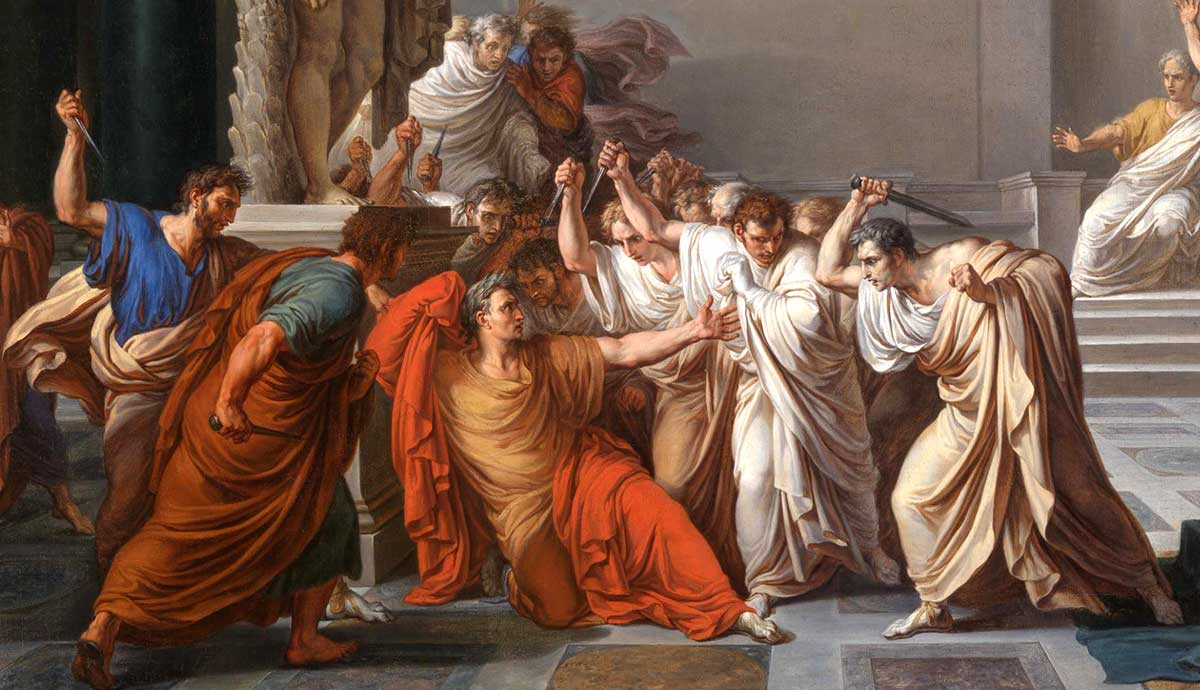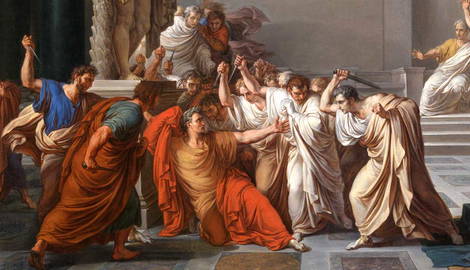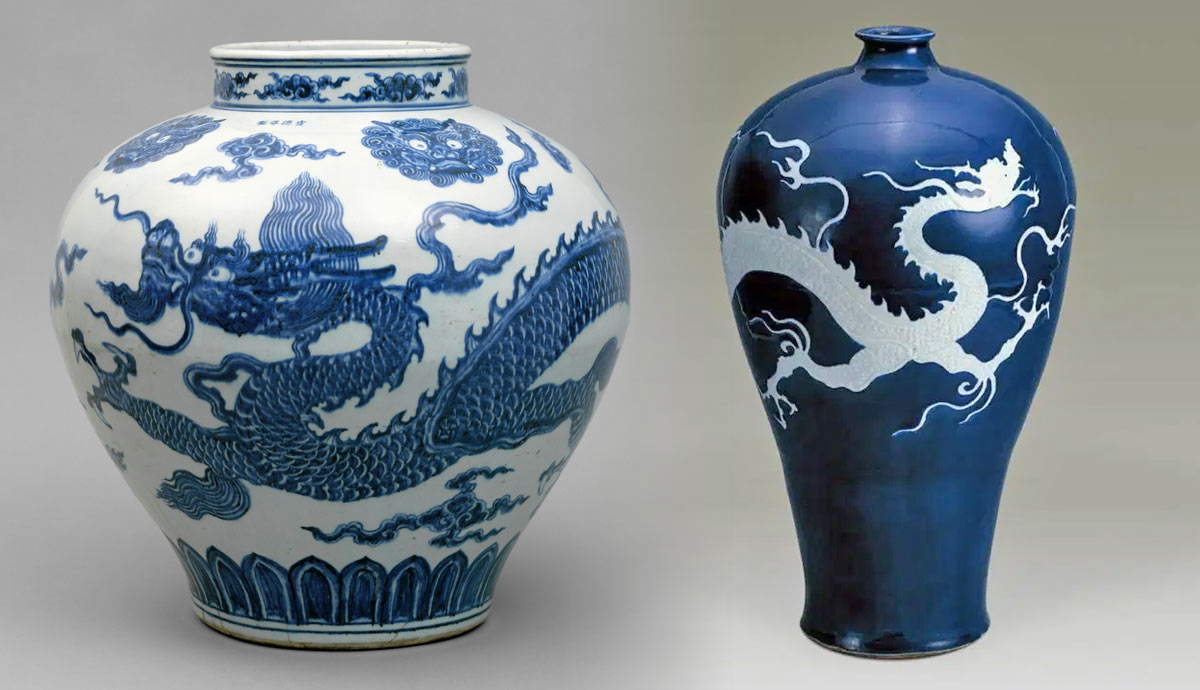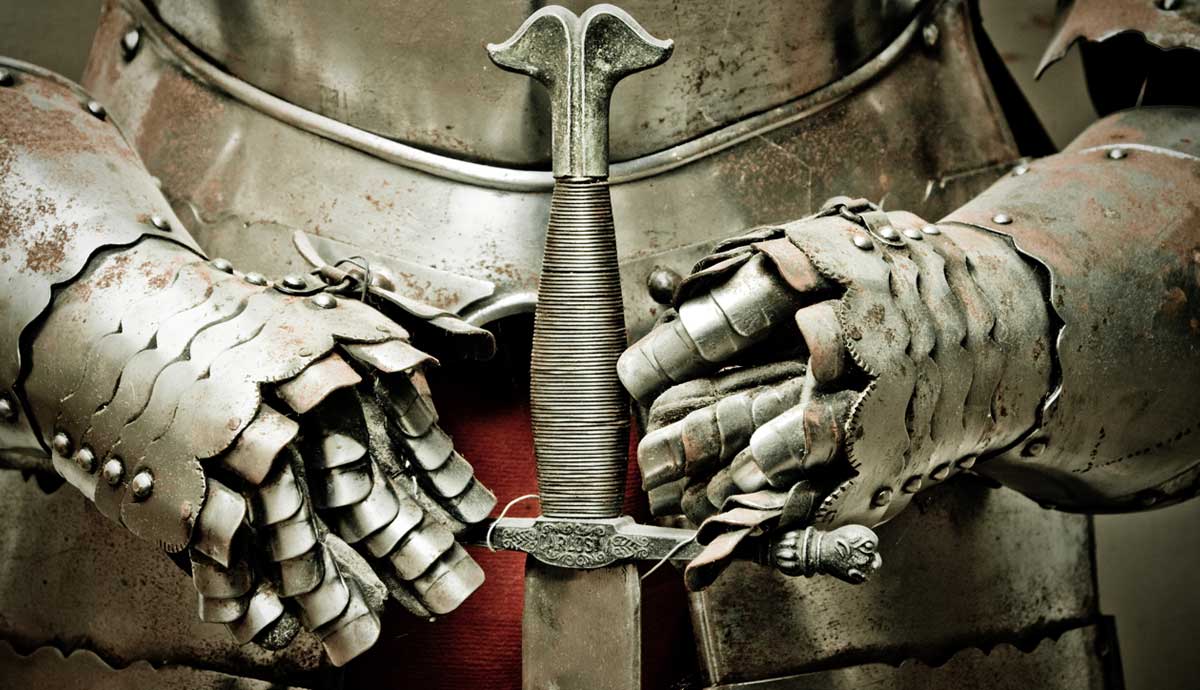
Gaius Julius Caesar is one of the most iconic figures in history. Thus, unsurprisingly, his last words became an indelible part of our culture. Now iconic “Et tu Brute?” is likely nothing more than a fictional Latin phrase invented by William Shakespeare for his play “Julius Caesar”. Ancient sources suggest that Caesar, who admired the Hellenistic world, may have said them in Greek – “καὶ σύ, τέκνον” meaning “You too, child?” Other accounts claim he said nothing at all. Caesar’s final words, real or imagined, became synonymous with the shock of betrayal and a symbol of the passing of an era – the end of the Roman Republic and the rise of the Roman Empire.
Julius Caesar’s Last Words Are not Truly Known

Julius Caesar, the most powerful man in late Republican Rome, was assassinated on March 15th, 44 BC, known also as the “Ides of March,”. He fell victim to a senatorial conspiracy that tried to preserve the Republic from a man they considered to be a tyrant. Caesar was assassinated during the Senate meeting, with the first blow made by his close associate and ally, Marcus Junius Brutus. This unexpected betrayal shocked Caesar, who reportedly addressed Brutus before being stabbed to death. However, we are unsure what Caesar’s last words were or if he spoke anything at all.
“Et tu Brute?” Was Invented by William Shakespeare

Three words are on everyone’s mind when someone mentions Julius Caesar’s assassination. “Et tu, Brute?” or “You too, Brutus?” are the words that perfectly encapsulate Caesar’s last moment – The betrayal of his close associate and friend. Marcus Junius Brutus was indeed close to Julius Caesar, despite siding with Caesar’s rival Pompey the Great during the civil war. Caesar, however, pardoned Brutus, bringing him into his inner circle and grooming him for the top position of consul. However, “Et tu Brute?” is a much later invention by William Shakespeare, appearing in Act 3 Scene 1 of his play “Julius Caesar.” This phrase was brought to life by many artists in the centuries that followed.
Caesar Probably Said His Last Words in Greek

Julius Caesar was an admirer of Hellenistic culture, so it should not be surprising that some of his most famous phrases could be spoken in Greek. This is the case for the iconic crossing of the Rubicon, where Caesar quoted his favourite Greek dramatist Menander: “Ἀνερρίφθω κύβος,” or “Let the die be cast.” In his “Twelve Caesars,” Suetonius mentioned that others reported Caesar’s uttering last words in Greek. Same is valid for Plutarch and Cassius Dio. The phrase in question is “καὶ σύ, τέκνον,” meaning “You too, child?” It was believed that Brutus could be Caesar’s illegitimate son, but modern historians rejected this theory. Following his pardon, Caesar became a mentor to Brutus, treating him like his own child. Thus, “You too, child” could be an expression of disbelief, of treason from someone considered part of a family.
Or Did He Say Anything at All?

Interestingly, while mentioning that others reported Caesar’s last words in Greek, all three of our main sources – Suetonius, Plutarch and Cassius Dio – say that Caesar said nothing to Brutus. According to Suetonius, Caesar shouted in Latin, “Why, this is violence!” or “But this is violence!” but nothing after it, just a groan after Brutus stabbed him with a dagger. For Plutarch, Caesar cursed Casca when the senator stabbed him. According to Cassius Dio, Caesar could not say or do anything, as the attack happened quickly, with many senators landing the blows. Thus, Caesar’s last words remain a subject of scholarly debate.
Julius Caesar’s Last Words Became Part of History

While we are not sure if Julius Caesar spoke anything at all, his last words, real or imagined, became part of Caesar’s legacy, or history itself. “Et, tu Brute” is deeply embedded in our culture as an expression of betrayal, especially from someone we trusted. However, Caesar’s last words were significant to the Romans, too, as Caesar’s sudden and violent death marked the end of an era. The civil war that ended with Brutus’ suicide after the Battle of Philippi was only an intro to another bloody conflict. Eventually, Octavian’s victory over the combined fleet of Mark Antony and his ally Cleopatra at Actium made him the sole master of the Roman world. And it would be this man, Julius Caesar’s nephew and adopted son, who would become Augustus, ending the Roman Republic and ushering in a new era – the Roman Empire.










